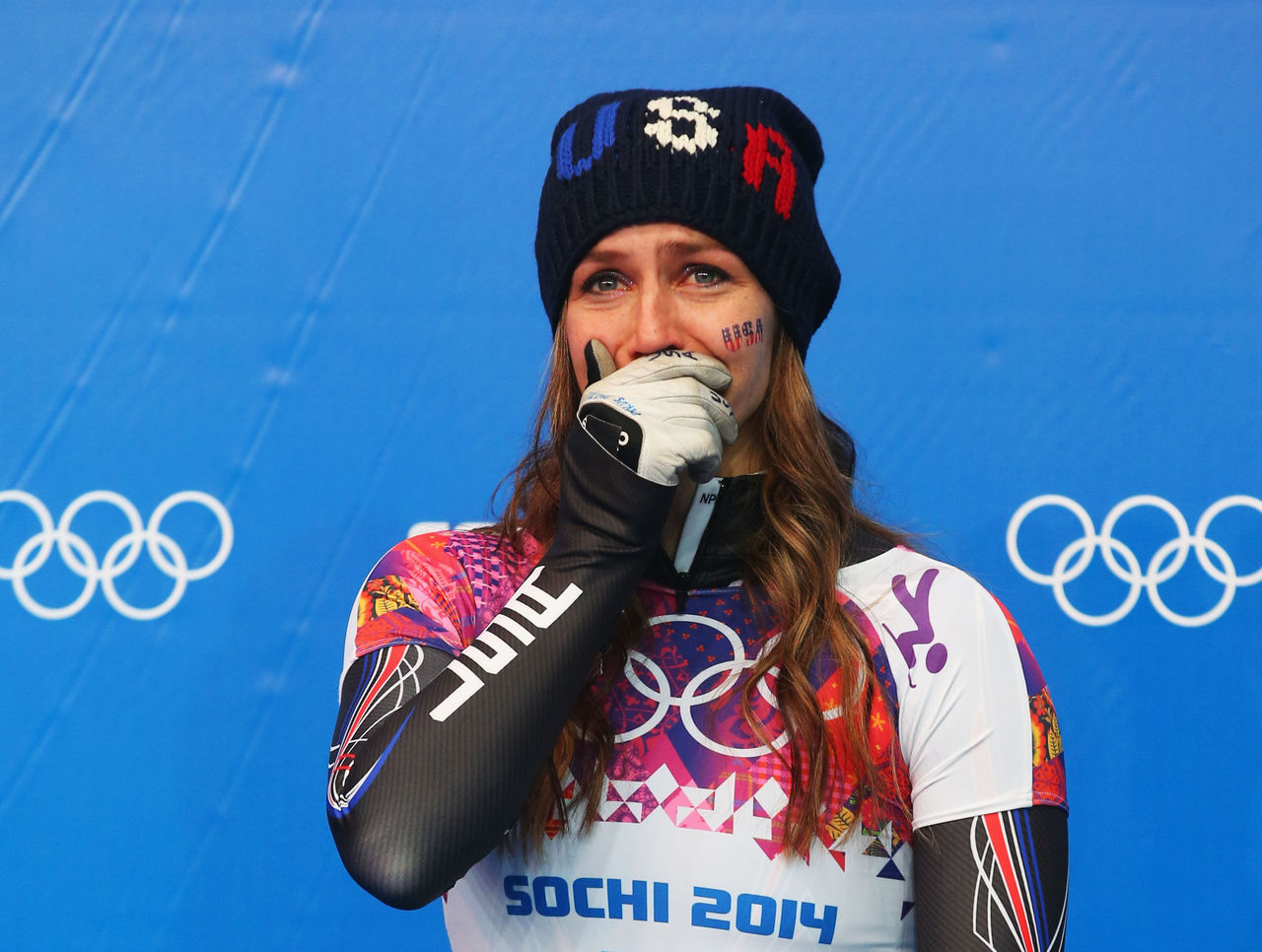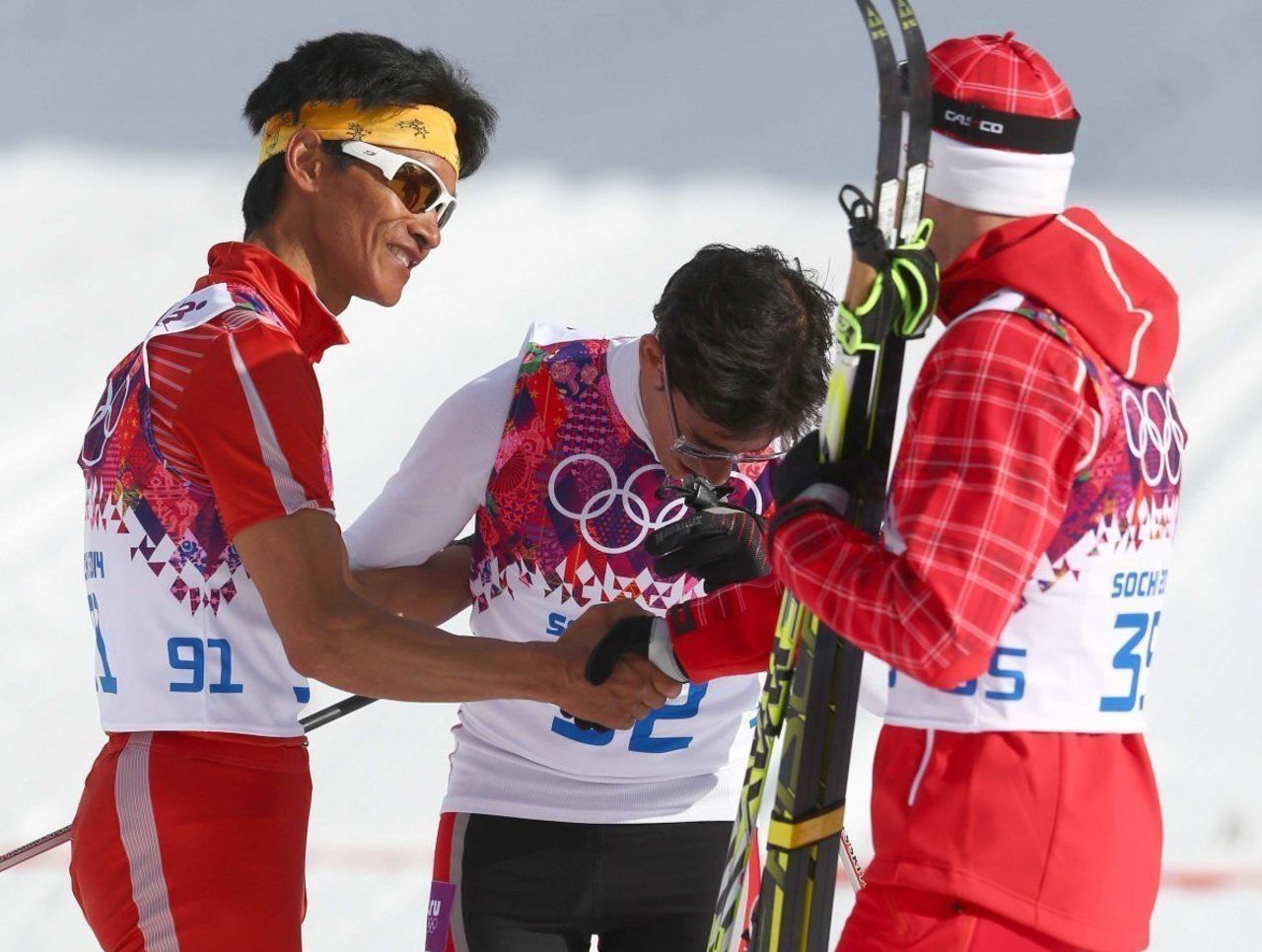Olympic Digest - Day 7: Olympic figure skating curse continues to haunt Canadian men
It started in 1984. Brian Orser's silver medal in Sarajevo was hardly surprising. American Scott Hamilton had dominated men's figure skating, winning three straight World Championships heading into the Winter Olympics. Orser's second place finish was an accomplishment, his best result in a major international competition.
It was closer in 1988. With Hamilton turning professional, there was no dominant figure atop the men's heap. Having not lost a competition since losing to his rival Brian Boitano at the 1986 world championships, Orser was skating on home ice. It was going to be different. He was the flag-bearer for Canada during the opening ceremonies. Alas, after winning the short program, he placed second in the free skate, and ended up losing to Boitano by .10 of a point.
It was heart breaking, and it was the closest Canada would ever get to a gold medal in men's figure skating.
At the 1989 World Championships, a young Canadian skater emerged with a thrilling victory. Kurt Browning was landing jumps that other skaters wouldn't even attempt in practice. His footwork was second to none, and he'd go on to win two more World Championships before coming to the 1992 Winter Games as a three-time World Champion.
A back injury had plagued his lead up to the Olympics, and he was a shell of his potential in Albertville. Two years later, he'd again have the opportunity to represent Canada at the Winter Olympics in Lillehammer, and once again, things would go horribly wrong. Failing to land a jump in the warm up to his free skate, Browning skated his program visibly shaken, almost scared. He finished fifth.
It was another Canadian who stole the show in Norway. Elvis Stojko skated to a surprising silver medal behind Browning's long-time rival Viktor Petrenko. Eschewing subjective artistic merit for objective technical skill, Stojko would represent the crest of the next wave of figure skating talent by winning three of the next four World Championships.
Stojko entered the 1998 Winter Olympic games in Nagano as the heavy favorite. Suffering from a groin injury and the flu, Stojko landed several triple jumps during his free skate, but stayed away from attempting a quad, likely costing him a shot at gold. Though heroic under the circumstances, his tepid performance was only good enough for silver.
Four years later in Salt Lake City, Stojko was a shell of his former self, as skating through injuries had finally caught up with him, and rendered him unable to keep up with the next generation of skaters.
The often forgotten Jeffrey Buttle won a bronze medal in Turin in 2006, but by then, the Canadian men had lost ground to the Russians, who had absolutely dominated the sport after Stojko's decline.
It wasn't until the emergence of Patrick Chan at the 2009 World Championships - where he placed second - that Canada could boast of a legitimate threat in men's figure skating. At the 2010 Games in Vancouver, Chan's disappointing short program left him too far behind for a realistic shot at a medal. However, a personal best free skate score would be encouraging.
And encouraged he was. Chan won the last three World Championships in the lead up to the Sochi Olympics. While perhaps not as strong of a favorite as Stojko in 1998, Chan was expected to compete with Evgeni Plushenko, Yuzuru Hanyu and Daisuke Takahashi for top spot.
Following the short program and Plushenko's sudden withdrawal, Chan found himself in second place - the only competition for Hanyu heading into Friday's free skate. It took a new world record from the Japanese skater to remain ahead of Chan after the first day.
On Friday, it appeared as though fate might finally be smiling upon the Canadian men. Hanyu had a disastrous performance ahead of Chan, falling twice, and opening the door wide open for a Canadian man to finally take the top of the podium in men's figure skating at the Olympics.
It wasn't meant to be.
Chan equaled Hanyu's follies, then did him one better, not sticking the landing on three jumps, and generally appearing shaky on the others.
It couldn't be said better than this:
Il avait l'or sur un plateau d'argent. Il a pris le plateau.
— Joannie Rochette (@JoannieRochette) February 14, 2014
Translated: He had gold on a silver platter. He took the platter.
It's easy to blame a curse, or even suggest that something in the Canadian male psyche of figure skaters forces them to crumble on the biggest stage. It's all nonsense. It's a once-every-four-years competition. Randomness happens, and unfortunately, the randomness that has happened to Canadians has almost always brought bad results. It's the equivalent of flipping a coin, and losing five or six times in a row.
It might seem that fate has aligned itself against you, but in reality, it's just really bad luck.
Medal Standings After Day 7
| Rank | Country | G | S | B | T |
|---|---|---|---|---|---|
| 1 | Germany | 7 | 2 | 1 | 10 |
| 2 | Switzerland | 5 | 1 | 1 | 7 |
| 3 | Canada | 4 | 5 | 2 | 11 |
| 4 | Norway | 4 | 3 | 6 | 13 |
| 4 | United States | 4 | 3 | 6 | 13 |
| 6 | Netherlands | 4 | 3 | 5 | 12 |
| 7 | Belarus | 3 | 0 | 1 | 4 |
| 8 | Russian Federation | 2 | 5 | 5 | 12 |
| 9 | China | 2 | 2 | 0 | 4 |
| 10 | France | 2 | 0 | 2 | 4 |

On her last attempt at Olympic glory, after years of personal struggles, U.S. luger Noelle Pikus-Pace won a silver medal behind Lizzy Yarnold of Great Britain. Immediately after crossing the finish line and learning that she would win an Olympic medal, Pikus-Pace went into the crowd to celebrate with her family. Then, while standing on the podium during the flower ceremony, she jumped in the air out of excitement.
Gold Medalist Waits Half Hour To Greet Last Place Competitor

After completing the men's 15 kilometer classic 30 seconds ahead of his next closest competitor, Swiss cross-country skier Dario Cologna waited an additional 30 minutes at the finish line in order to congratulate last-place finisher Roberto Carcelen of Peru. Carcelen battled broken ribs and restricted breathing throughout his race, but remained determined to finish. The greeting at the finish line was one of those iconic Olympic moments that aren't easily forgotten.
Five More Things:
Switzerland's Sandro Viletta claimed gold in the men's super combined. Croatia's Ivica Kostelic won the silver medal, with Italy's Christof Innerhofer taking the bronze. Bode Miller finished sixth, contributing much Bodenfreude to those of us who care not for the American skier.
Belarusian Darya Domracheva missed only a single target while skiing faster than anyone else in Friday's women's biathlon 15km individual race. The gold medal is Domracheva's second in Sochi after winning the women's pursuit on Tuesday.
Alla Tsuper of Belarus was the only skier to land her jump cleanly in the final round of competition in women's aerials, making her the gold medal winner, almost by default.
Canada crushed Austria 6-0, Finland beat Switzerland 6-1, and Sweden overcame Switzerland 1-0 in men's hockey games.
Good read: Why doctors in Sochi speak in code.
I should've asked him to be my Valentine! pic.twitter.com/J37uqf9A0Y
— Brittany Schussler (@bschussler) February 14, 2014